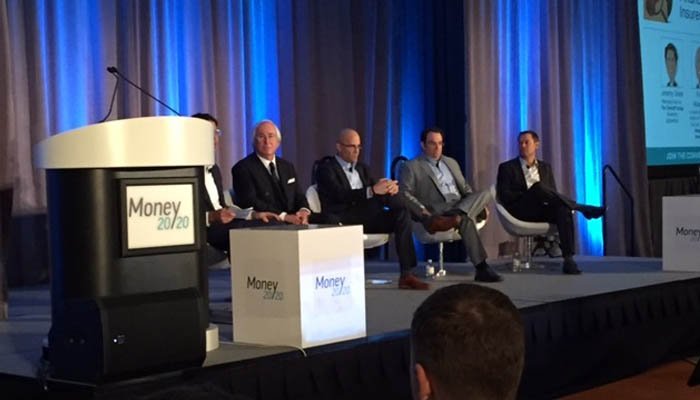There is a case of identity theft every two seconds in the U.S., said fraud expert Frank Abagnale. There were 60 billion cases in the last 12 months alone.
Mr. Abagnale outlined instances of how an individual’s personal information is at risk, and there were many:
- The office manager at your doctor’s office that scans and faxes your medical records with your social security number, name, address and e-mail.
- The digital photocopier used to copy your birth certificate when applying for a passport.
- The ATM in the convenience store, not affiliated with a major bank, that you used before a night out.
- The debit card you used at the gas station that contained a skimmer, enabling fraudsters full access to your bank account.
- The check you recently wrote to cover the first semester’s tuition? Where does it go? How many people handle it?
- Your Facebook head shot and that update about your trip to Las Vegas you posted before you left.
Mr. Abagnale scared the daylights out of an audience of more than 1,000 at his appearance at Money 20/20 on Monday. Thankfully, he offered some ways in which he protects his information.
“It’s ridiculous to think your identity has not been stolen,” he said. “Every piece of information leads to another piece of information.”
Who is Frank Abagnale?
We recommend viewing the 2002 film Catch Me If You Can. It is the story of a younger Frank Abagnale who forged millions of dollars in checks and passed himself off as a doctor, lawyer and a Pan Am pilot — before he turned 19 years old.
Spoiler alert: As part of his sentencing, Mr. Abagnale began helping the FBI solve check forging cases, identity thefts and other financial crimes — a career in which he has flourished for the last 40 years.
ID Thieves Investing: Stolen Personal Data of Children
Like baseball cards or classic automobiles, personal data grows in value when held. Mr. Abagnale discussed personal information theft of children – social security numbers and birthdates – which identity thieves steal for cheap, hoard and sell.
By the time a child grows through his late teens, fraudulent bank accounts and credit cards can appear in their names. Such mishaps can wreak havoc on someone’s personal life, in addition to their credit score.
“I worry about children more than I do seniors,” Mr. Abagnale said. “Children’s identities are four times more expensive on the black market. People who steal data warehouse that data. The longer they hold it, the more valuable it becomes.”
4 Ways Frank Abagnale Protects Himself Against Identity Theft
1. Use a shredder, but not just any shredder. Mr. Abagnale showed how fraudsters can recreate shredded documents with cheap software. He denounced straight shredders and criss-cross shredders, instead opting for a security micro-cut shredder — which costs the same as the other two.
2. Use a credit monitoring service. But make certain it monitors all three credit bureaus (Transunion, Equifax and Experian) and notifies you in real time if there is a compromise. If not, it is virtually useless, said Mr. Abagnale, who gave ringing endorsement of Lifelock, which monitors the social security numbers, among many other things, of those in your family.
3. When possible, use a credit card, not a check. A credit card is the bank’s money. A consumer is always protected when using a credit card. Need to write out a check? Find an alternative way to pay. A check sees too many eyes before its final destination.
4. Don’t use debit cards. Some consumers use debit cards unknowing they are a gateway to your bank account. Skimmer attacks – artificial card readers placed over the legitimate reader at an ATM or gas station – have been increasing dramatically in the U.S. When possible, use credit cards.
A Disturbing Prediction
As his seminar closed, Mr. Abagnale was asked what he thought identity theft and cyberattacks might look like in the near future. His response was disturbing:
“I think cybercrime is turning black. I think we’ll see the power to turn off pacemakers and threats against infrastructures like power grids.”



I just watched him on a Google Talks presentation. He mentioned he used a service to monitor his credit, but he never provided a name. After doing a search, I kept finding an association with PrivacyGuard. But you mentioned Lifelock above. Is that what he recommends?
Indeed, Mark. I’ve seen him speak a number of times and he does use Lifelock.